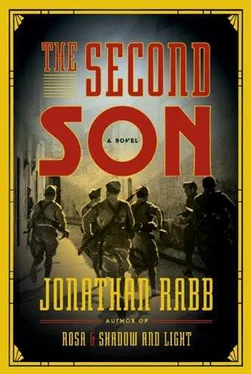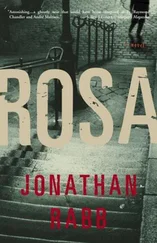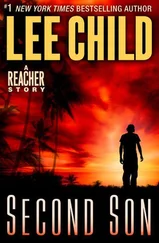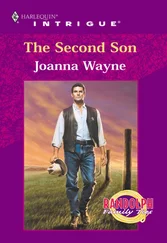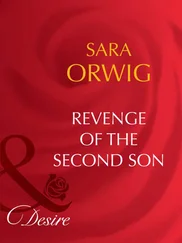Jonathan Rabb - The Second Son
Здесь есть возможность читать онлайн «Jonathan Rabb - The Second Son» весь текст электронной книги совершенно бесплатно (целиком полную версию без сокращений). В некоторых случаях можно слушать аудио, скачать через торрент в формате fb2 и присутствует краткое содержание. Жанр: Политический детектив, на английском языке. Описание произведения, (предисловие) а так же отзывы посетителей доступны на портале библиотеки ЛибКат.
- Название:The Second Son
- Автор:
- Жанр:
- Год:неизвестен
- ISBN:нет данных
- Рейтинг книги:4 / 5. Голосов: 1
-
Избранное:Добавить в избранное
- Отзывы:
-
Ваша оценка:
- 80
- 1
- 2
- 3
- 4
- 5
The Second Son: краткое содержание, описание и аннотация
Предлагаем к чтению аннотацию, описание, краткое содержание или предисловие (зависит от того, что написал сам автор книги «The Second Son»). Если вы не нашли необходимую информацию о книге — напишите в комментариях, мы постараемся отыскать её.
The Second Son — читать онлайн бесплатно полную книгу (весь текст) целиком
Ниже представлен текст книги, разбитый по страницам. Система сохранения места последней прочитанной страницы, позволяет с удобством читать онлайн бесплатно книгу «The Second Son», без необходимости каждый раз заново искать на чём Вы остановились. Поставьте закладку, и сможете в любой момент перейти на страницу, на которой закончили чтение.
Интервал:
Закладка:
“I know you did.”
Sascha breathed out as he stared. He shook his head. “How could I kill him when he’d already killed me?” He continued to gaze out. “You still think you won’t be using that pistol?”
Hoffner felt suddenly rooted to his chair. It was all he could do to say, “Killed you?”
“This”-Sascha turned and glanced around the attic-“this is what I’m forced to be because of Georg. He took my life. I took his.”
Hoffner heard the words but refused to admit what they meant. His head began to compress.
“How?” he said.
“ ‘How?’ ” Sascha repeated lazily. “And that makes a difference to you?”
“Yes.”
“With my hands around his throat, and his around mine.” The voice conveyed nothing.
Hoffner heard himself say, “And the bullet?”
Sascha’s stare was equally empty. Something registered for a moment and then was gone. “I don’t know why that. Maybe it just seemed right.” He turned back to the window.
There was a long silence, and Sascha said, “Not enough for him to be the Jew. Not enough for me to tell him it was a mistake, too dangerous.”
Hoffner hadn’t been listening. “You killed him-”
“Because he was a Jew?” The bitterness poured out. “Don’t be so stupid. You think that meant anything to me? You think that could mean anything to me? He made his choice. It was his to live with. He knew it had nothing to do with me.”
Hoffner heard the unintended anguish in Sascha’s voice, the eyes searching through the memories. It was a mind now tearing itself apart. Hoffner felt no less undone. “And for that he’s dead?”
Sascha regained his focus. He looked again at Hoffner, the loathing directed at both himself and his father.
“No,” he said. “Not for that.”
Sascha reached into his pocket and pulled out a piece of paper. It looked as if it had been balled up, then flattened and folded into a neat square. The wrinkles across the front showed dirt and fingerprints. Hoffner stared at it and felt the blood drain from his face.
“This is what he did,” Sascha said. He held the paper out to his father. Somehow Hoffner found the paper in his hand. “This is what he was too much of a coward to admit.”
Hoffner felt the creases on his fingers, the moistness of the paper. He forced himself to open it and, in an instant more unbearable than any he had ever known, Hoffner saw the words he knew would be there:
To the Ministry Secretary in the Matter of Alexander Kurtzman:
Hoffner closed his eyes, and the air drew out of him. There was no reason to read any further. No reason when he knew the letter by heart.
“At least he led me to the guns,” Sascha said, now staring out. “At least here they’ll show me some respect.”
Hoffner heard the desperate certainty in the boy’s voice, the invented logic of a mind no longer in control. Sascha had convinced himself the Spaniards would take him for a Hisma envoy, a man sent from Berlin. He had convinced himself he could be Alexander Kurtzman again.
Sascha said, “They’ll probably have to be taught how to use them. Still-”
Hoffner felt his hand begin to shake, his throat tighten. It was barely a whisper when he spoke.
“Georg didn’t write this.”
Hoffner saw the paper scrolling through the typewriter, the keys planting themselves on each line, and the words:
Alexander Kurtzman, born Alexander Hoffner, is the son of Nikolai Hoffner, the son of Rokel Hoffner, a Jew. By the Nuremberg Statutes of 1935, Kurtzman is a Jew. He must be expelled from the party.
Hoffner had left his signature off the page when he had sent it-a month ago, maybe more-and here it was in his hands again. Such letters always came with anonymity. It gave them substance. Even the fool at the Ministry-Steiner or Stiegman or Steckler-had said it.
Hoffner opened his eyes and saw Sascha staring at him.
Hoffner said, “I was the one to tell them you’re a Jew.”
Sascha’s stare became almost hypnotic.
Hoffner continued. “It didn’t matter what happened to me. But you-you had to be given a way out.”
Sascha’s brow lowered and his face began to contort. “A way out?”
“I wrote it to save you, Sascha. To get you away from these people, once and for all.” Hoffner struggled to find the words. “I did it to save you, and you killed him.”
Sascha began to shake his head, slowly at first, then more forcefully. He turned to the window and tried to stifle his breath, but each came with greater force.
“You’re lying,” he said. It was as if he were pleading with himself. “You were in the letter. You were mentioned in the letter. He wanted to destroy us both. Don’t you see that?”
Hoffner felt the weight of Georg’s death like a vise pressing down on his head. There was no escaping it now. He had killed his son, just as if he had wrapped his fingers around the boy’s throat himself.
“No,” Hoffner said, his voice hollow. “Georg would never have done anything to you. He loved you.”
Sascha’s hands clenched at the sill.
“I did it to save you,” Hoffner said. His eyes filled. “I did it because-”
Sascha turned. There was no seeing beyond the hatred in the eyes now. He came at Hoffner, hands stretching out. He grabbed his father’s chest and pulled him from the chair. The force brought them into the beam, and Hoffner felt the wood slap across his face. A moment later, Sascha was throwing him against the wall; Hoffner tripped back, down onto his knees. He tried to bring himself forward, but Sascha began to kick his feet into Hoffner’s gut, the face pure madness. It was a face beyond redemption.
“You stupid, selfish man!”
Hoffner reached for Sascha’s legs. He pulled them out from under the boy, and Sascha toppled back, his head smacking against a beam. Sascha began to stumble toward the floor, and Hoffner pulled himself up. He began to speak, but Sascha’s foot caught him across the cheek as the boy fell. Hoffner felt the room begin to spin, and he saw Sascha on his back. Hoffner lunged.
The body was so thin, the chest and arms little more than bones and flesh; Hoffner felt his own weight clamp down onto the boy. Sascha’s fingers dug into Hoffner’s chest, but Hoffner leaned his arm farther into the throat. He heard him choke-he heard his son gasping for breath-and he stared into Sascha’s face, the cheeks red, the lips full with blood.
“You killed him.” Hoffner heard his own voice, small and desperate. “You killed your brother.” Sascha struggled, and Hoffner brought his other hand to the neck. “You let me kill my own son.”
Sascha broke his arm free. Hoffner braced for the nails against his cheek, but he saw Sascha’s fingers begin to claw against the floor. The pistol lay just out of reach. Hoffner watched as Sascha’s hand drew closer to it. He saw the fingers on the barrel, the sound of the pistol scraping against the wood, and he felt his own weight press down, his own hand tighten around the throat. There was no voice, no pleading, no miracle to save this boy from himself.
Hoffner stared at the pistol. He heard Sascha cough for breath and felt his own life drain out of him.
I did it to save you, he thought.
Hoffner saw the gun in the boy’s grip, and he closed his eyes.
A silence came, filling Hoffner whole. He lay there, pressing down on the boy’s throat and begging to feel the metal of the pistol against his own skin. If this was prayer, it was the only one he had ever spoken. He heard the snap and he called out, but it was his own chest, his own gasping for air that he felt. The stillness was suffocating, and Hoffner opened his eyes.
“Oh God.”
He stared down and saw Sascha perfectly still, eyes frozen on the gun, arm outstretched. The boy’s neck had broken.
Читать дальшеИнтервал:
Закладка:
Похожие книги на «The Second Son»
Представляем Вашему вниманию похожие книги на «The Second Son» списком для выбора. Мы отобрали схожую по названию и смыслу литературу в надежде предоставить читателям больше вариантов отыскать новые, интересные, ещё непрочитанные произведения.
Обсуждение, отзывы о книге «The Second Son» и просто собственные мнения читателей. Оставьте ваши комментарии, напишите, что Вы думаете о произведении, его смысле или главных героях. Укажите что конкретно понравилось, а что нет, и почему Вы так считаете.
